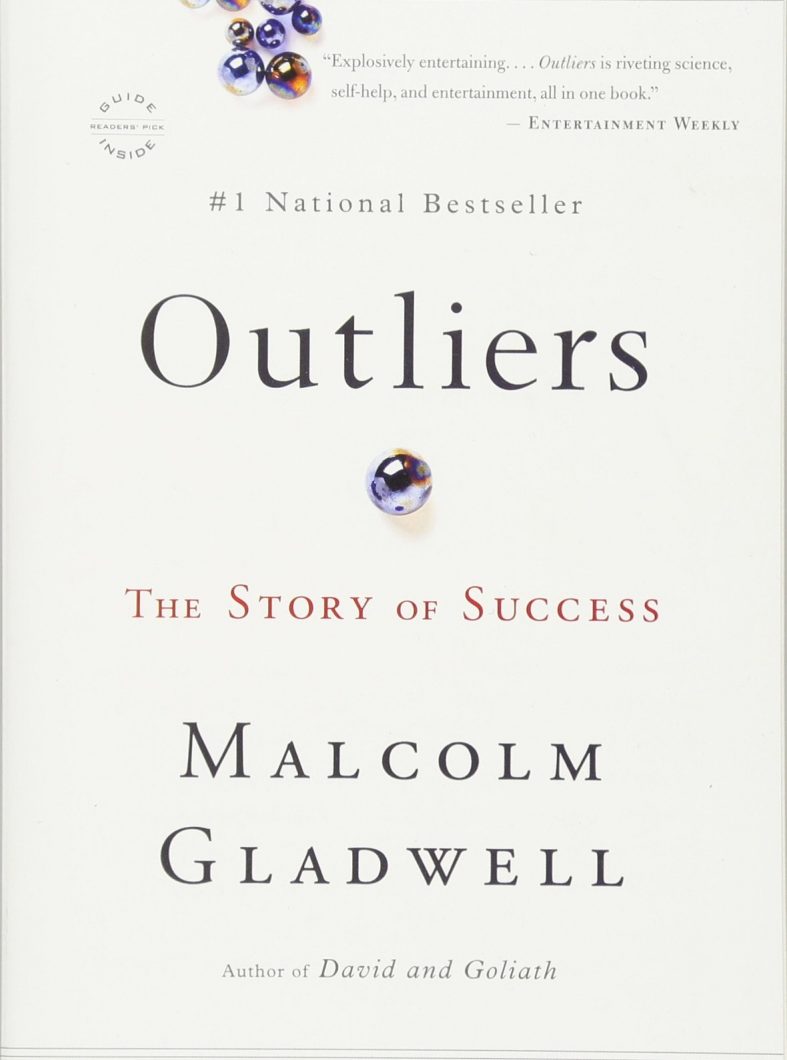Gladwell: Outliers
How was the book?
Malcom Gladwell starts his book very boldly stating that ”I will argue that there is something profoundly wrong with the way we make sense of success.” And indeed he is right. I have read ”million” articles stating what to do in order to become successful.
He continues that ”their success is not exceptional or mysterious. It is grounded in a web of advantages and inheritances, some deserved, some not, some earned, some just plain lucky—but all critical to making them who they are”. So there is no secret ingredient or recipe on how to become successful. There are the 10 000 hours rules etc. but mainly we are talking about factors
”This is not a book about tall trees. It’s a book about forests—and hockey is a good place to start because the explanation for who gets to the top of the hockey world is a lot more interesting and complicated than it looks. In fact, it’s downright peculiar. ”
”The outlier, in the end, is not an outlier at all.”
What are the key learnings of the book?
To become successful you need:
· Accumulative advantage,
· you have to be skilled-talented-driven -type of person and
· (second) chance.
Outliers are ”men and women who do things that are out of the ordinary”. And this book is about their success. ”Success is the result of what sociologists like to call “accumulative advantage.””
But there is no mystery about being a successful. The story of their success is based on:
1) history
2) community,
3) opportunity and
4) legacy.
Besides those facts the Outliers are first and foremost the skilled, the talented, and the driven.
History
History explains something about people who are extraordinary successful – they were born in the right time. For example ”more hockey players were born in January than in any other month, and by an overwhelming margin. The second most frequent birth month? February. The third? March.”
It’s because ”coaches start to select players for the traveling “rep” squad—the all-star teams—at the age of nine or ten, and of course they are more likely to view as talented the bigger and more coordinated players, who have had the benefit of critical extra months of maturity.”
The same goes with first industrial wave in the USA and it goes with the tech billionaires. They were born in the right time.
Community
Community matters. Gladwell uses a village called Roseto as an example.
It is a village in hills of eastern Pennsylvania. They had ”created a powerful, protective social structure capable of insulating them from the pressures of the modern world.” People living in Roseto were protected, because they lived in that particular village.
Opportunity
Gladwell uses Beatles and Bill Gates as an examples when illustrating the meaning of opportunity on becoming successful.
Beatles: “They were no good onstage when they went there and they were very good when they came back,” Norman went on. “They learned not only stamina. They had to learn an enormous amount of numbers—cover versions of everything you can think of, not just rock and roll, a bit of jazz too. They weren’t disciplined onstage at all before that. But when they came back, they sounded like no one else. It was the making of them.”
Bill Gates: “It was my obsession,” Gates says of his early high school years. “I skipped athletics. I went up there at night. We were programming on weekends. It would be a rare week that we wouldn’t get twenty or thirty hours in. There was a period where Paul Allen and I got in trouble for stealing a bunch of passwords and crashing the system.”
”All the outliers we’ve looked at so far were the beneficiaries of some kind of unusual opportunity. Lucky breaks don’t seem like the exception with software billionaires and rock bands and star athletes. They seem like the rule.”
Psychologist K. Anders Ericsson: ”Ten thousand hours is the magic number of greatness.” Both Beatles and Bill Gates had their obsession and they got the opportunity to practice their obsession on becoming so good that now one could compete with them. Outliers work much, much harder……
How should we change according to the book?
”Everything we have learned in Outliers says that success follows a predictable course. It is not the brightest who succeed. If it were, Chris Langan would be up there with Einstein. Nor is success simply the sum of the decisions and efforts we make on our own behalf. It is, rather, a gift. Outliers are those who have been given opportunities—and who have had the strength and presence of mind to seize them.”
1) We prematurely write off people (as failures) must be ended.
“We do ability grouping early on in childhood. We have advanced reading groups and advanced math groups. So, early on, if we look at young kids, in kindergarten and first grade, the teachers are confusing maturity with ability.
2) (Second) chance
”When the Korean pilots where given a second chance the prevailed…. And what Korean Air did, when it finally turned its operations around, was give its pilots the opportunity to escape the constraints of their cultural legacy….. We took them out of their culture and re-normed them.”
3) Society for all
”To build a better world we need to replace the patchwork of lucky breaks and arbitrary advantages that today determine success—the fortunate birth dates and the happy accidents of history—with a society that provides opportunities for all.”
Words of wisdom…. Chance society…. You just need a chance.
What should I personally do?
I should cultivate:
· autonomy,
· complexity and
· a connection between effort and reward in doing creative work
”That’s worth more to most of us than money.”
Summary
The book in six words – ”Hard work is a prison sentence only if it does not have meaning”.
